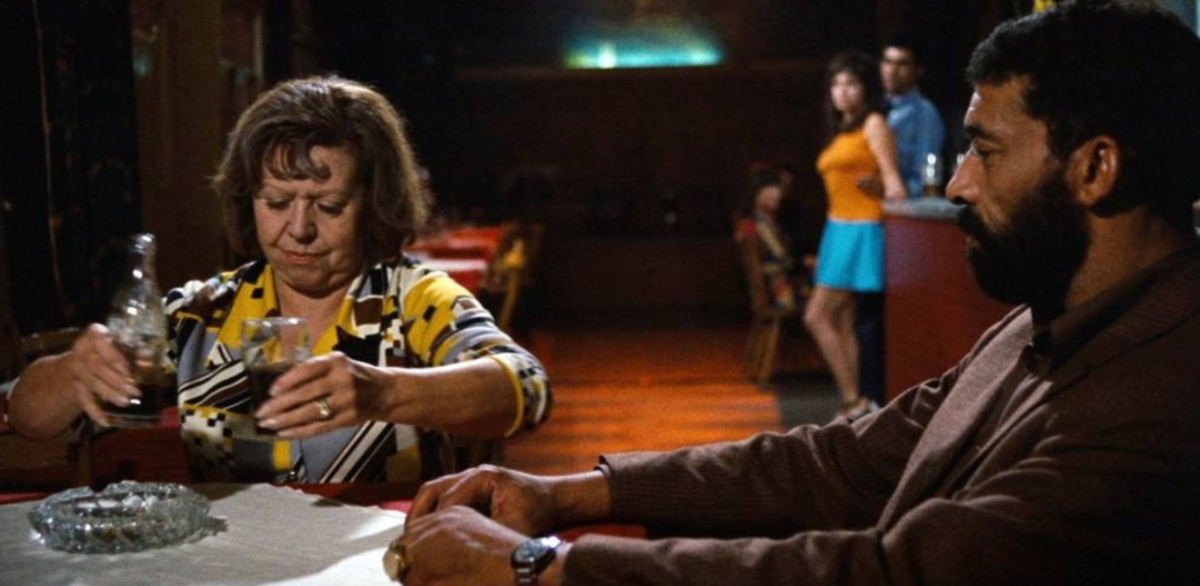I think I tried Fassbinder in my twenties when I wanted to be “cultured” but, without a primer and too used to Hollywood and the BBC, I really didn’t get him. Too earnest. It didn’t even improve my German. It makes me appreciate all the more the benefits of being led to the trough!
So:
- Pre-war and wartime flight of film talent from Germany, leaving not much behind.
- Literature and theatre were the first art forms to be revived after the war.
- Reticence in post-war Germany about using film for anything more than entertainment – too tarnished by working with the Nazis.
- Oberhausen Manifesto 1962 calling for new German film: Papas Kino ist tot.
- Television was obliged to support film-making after 1974.
- Auteur theory.
- Seen against the background of the Red Army Faction, the “German autumn” (1977) and the 1972 Munich Olympics. I’d rather forgotten what an angry decade that was.
- This was only about West Germany.
Fear Eat (sic) The Soul, Rainer Werner Fassbinder, 1974
Fassbinder didn’t go to film school; he learned via theatre and collaboration and his output was prolific and varied. Here he echoed the melodramas of Douglas Sirk (also German, I have learned): a love affair between an ageing Putzfrau and a young Moroccan. The clip we watched had me hooked: the whole mise en scène from the use of colour, distance and symbols (grilles and stairs). Fassbinder sympathised with the marginalised, and this comes across very clearly. Perhaps I might watch it one day.
The Lost Honour of Katharina Blum, Volker Schlöndorff and Margarethe von Trotta, 1975
Based on a 1974 novel by Heinrich Böll. After the tableaux of the previous film, this was very confusing: multiple points of view and uncertainty for the viewer about what was happening. In that way it reflected the disruption and danger of the 1970s. It seems to be about how an innocent woman is punished for spending one night with an alleged terrorist, mistreated by the police and vilified by the media. I can’t say I want to see the whole film, but it did remind me that previous generations have been just as outraged by the abuse of authority as anyone today.
Aguirre, The Wrath Of God, Werner Herzog, 1972
Herzog really is sui generis. I’ve seen the film before, but this time it was great to linger on the painterliness of some scenes. And then there was the action – less great. I suppose the knowledge that the film crew really were shooting the rapids on flimsy rafts might add to some viewers’ enjoyment, but not mine. I really don’t expect actors to put themselves in physical danger for my entertainment. And, after that po-faced comment – of course I want to watch it again.

